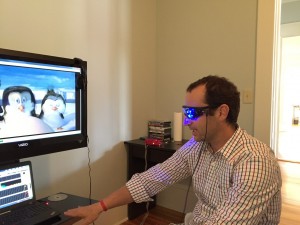
The American Academy of Pediatrics Endorses A Non-Medication Solution For ADHD
Medication for attention deficit disorder may become a thing of the past.
Carrollton, GA—Currently the most common method a doctor will recommend to treat attention deficit disorder is with prescription drugs but that may be changing.
These drugs have names such as Ritalin, Adderall, Concerta and Strattera and are primarily either neurostimulant drugs or act by altering neurotransmitters in the brain. These drugs have a variety of well documented harmful side effects, including loss of appetite, anxiety, nervousness, psychosis and suicidal thoughts.
The National Institute of Mental Health did a long-term study on ADHD and found, “the long term efficacy of stimulate medication has NOT been demonstrated for any domain of child functioning.”
Another study on Ritalin by Nadine Lambert, professor at UC Berkley followed 500 kids for 26 years and reported that “Ritalin usage makes the brain more susceptible to cocaine addiction and DOUBLES the likelihood that a child will abuse drugs.”
Research also states, “Up to 70% of children with ADHD exhibit symptoms into their adult years, and these symptoms interfere significantly with academic, vocational and social functioning.” A recent study from University of Cambridge. (2015, August 27)
confirms this finding.
Memory and Concussion Center of West Georgia has partnered with Elite Healthcare to now offer hope for ADHD treatment without taking drugs to the Carrollton and west Georgia community. (see the special brain map examination at the end of this article)
ADD spectrum disorders including ADHD can be helped without drugs and the long term benefits out last anything known by 10, 20 even 30 years!
A recent 2012 study performed by the American Academy of Pediatrics stated that this therapy is on par with the positive symptomatic benefits seen with medications but without the side effects.This is amazing news to people looking for long term relief from ADHD!
Attention deficit disorder is often the result of abnormal brain activity leading to a host of neurobehavioral symptoms such as short attention span, distractibility, poor impulse control, disorganization, procrastination and poor internal supervision. Associated symptoms can include anxiety, depression and insomnia.
Changes in brain activity can occur for a variety of reasons including environment factors, DNA/Genetic, head trauma, inflammation, autoimmunity, hormonal imbalance and nutritional reactivity. Areas of the brain may become under active or weaker than other areas leading to the symptoms associated to AD/HD.
Since the brain is an electrochemical organ it makes sense to measure brain wave activity. A QEEG (quantitative electroencephalogram) or Brain Map is a painless test, which involves placing electrodes on the scalp to pick up electrical activity in each lobe of the brain. Once the data has been gathered it is compared to a normative database and a report is developed for the doctor to interpret.
Another study compared medication only to a neurofeedback group and medication group. The results demonstrated that six months after discontinuing therapy only the neurofeedback group showed sustained improvements, the medication only group, did not.
Neurofeedback is like exercise for the brain. Overtime a stronger more balanced brain is reflected in more socially appropriate behavior and capacity to stay on task. Studies show that neurofeedback training benefits last 30 years or longer and may even increase IQ by 10-12 points.
If you know someone who could use our help, please have them call the office to schedule a $60 non-invasive mapping of the brain. The regular cost is $299. This offer is limited to first 10 callers 770-214-9146. We’d love to give an ADHD child or adult a new, more hopeful future!





